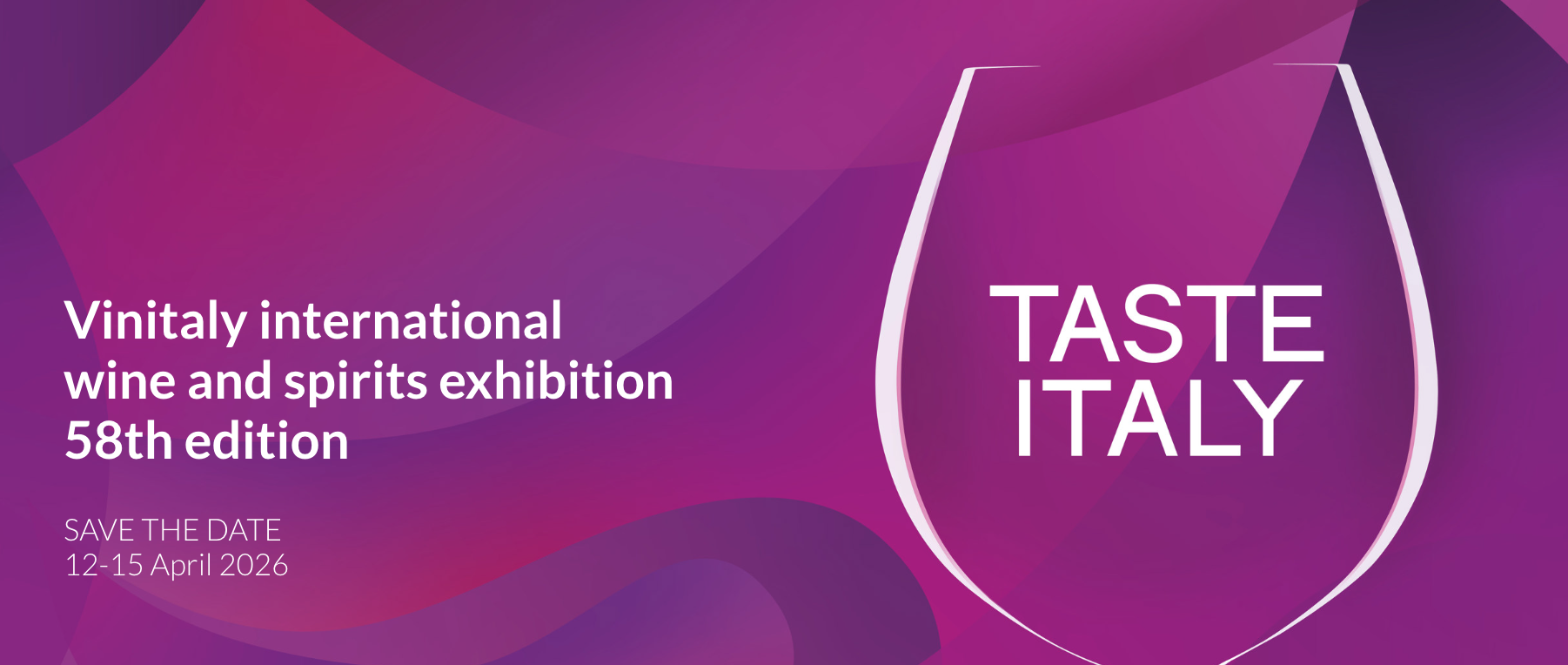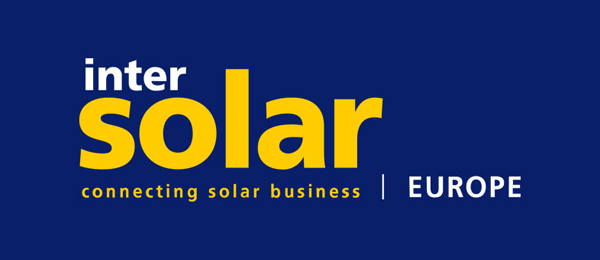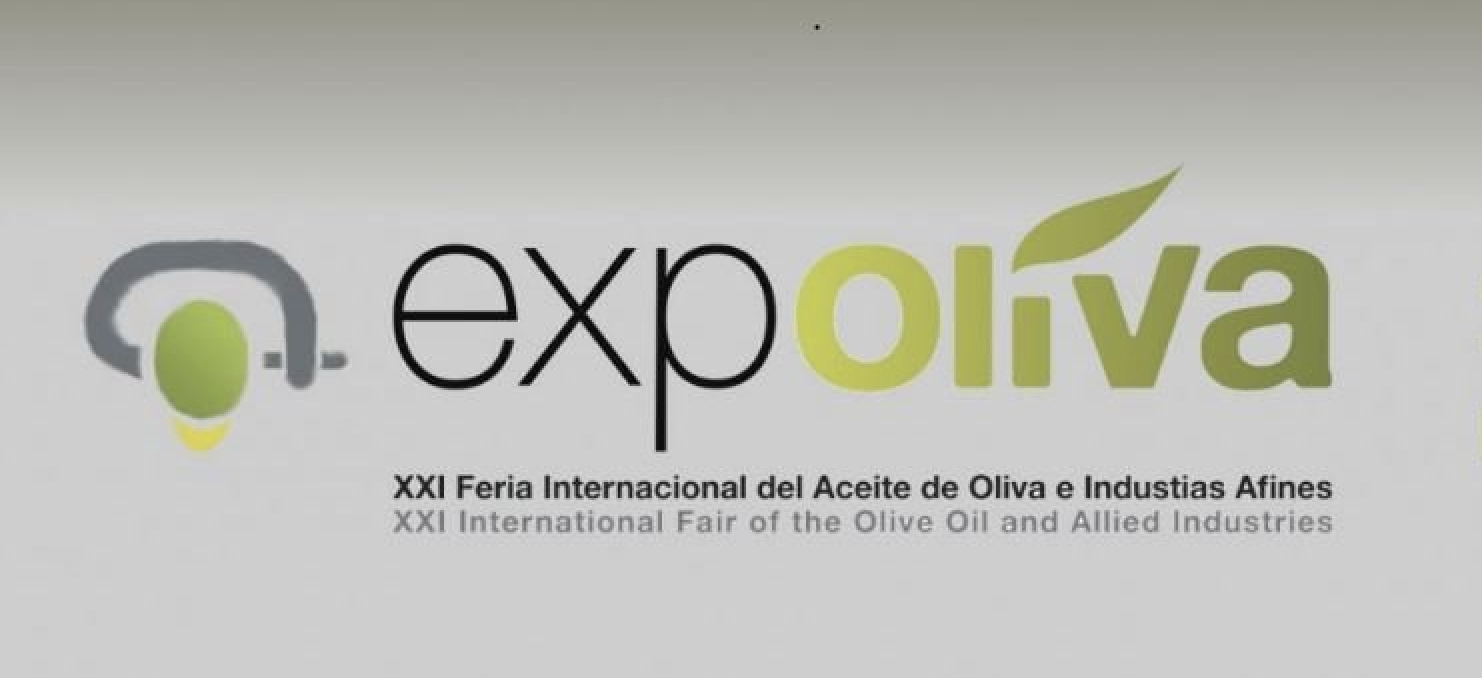
Expoliva Jaén 2026: Spain Prepares Largest Olive Oil World Fair
Expoliva Jaén 2026 is gearing up to solidify its position as the world’s largest showcase for olive oil, following the resounding success of previous editions. The 2025 edition welcomed over 52,000 visitors and featured the participation of more than 1,600 international professionals—numbers we expect to surpass in the upcoming edition. Spain, without a doubt, leads this strategic sector with 2.8 million hectares of olive groves, representing 24% of the world’s olive cultivation.
Additionally, our estimated production reaches 1.42 million tons, equivalent to 40% of global output. The previous Expoliva occupied 38,000 square meters with 100% occupancy, while the Ministry of Agriculture, Fisheries, and Food participated with an impressive 132-square-meter stand. Therefore, our goal for Expoliva 2026 is to exceed these figures and strengthen international trade in the olive oil sector. The previous edition also proved to be a cultural benchmark, with 287 submissions from 17 countries in its literary contest, transforming olive groves not only into a symbol of territorial identity but also into a source of international literary inspiration.
Expoliva 2026 Cements Jaén as the Global Capital of Olive Oil
The city of Jaén reaffirms its status as the global epicenter of olive oil thanks to Expoliva, which in its 2026 edition promises to break all previous records. Drawing on the results of Expoliva 2025, we can anticipate an event of extraordinary scale that will further solidify Spain’s strategic position in the global olive oil industry.
Projected Figures for Visitors, Exhibitors, and Space
The numbers from Expoliva 2025 set an ambitious starting point for the next edition. The fair attracted over 52,000 visitors, including 1,600 international professionals from 52 countries. The exhibition featured 300 direct exhibitors and 183 indirect ones, covering a total area of 38,000 square meters. Additionally, the estimated economic impact reached €40 million, a figure expected to grow in 2026.
For 2026, organizers plan to expand the exhibition space even further, considering that in 2025, 37,500 square meters were booked with 95% occupancy two months before the event. This growth reflects the increasing interest of both national and international companies in participating in the world’s premier olive oil showcase.
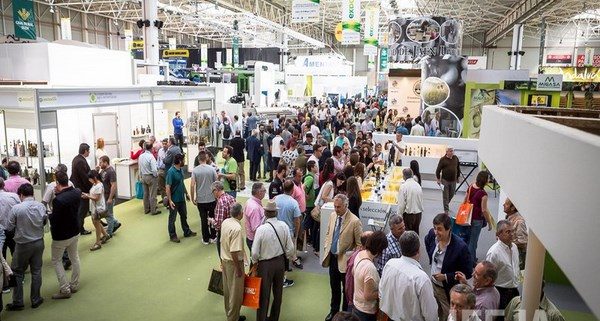
National and International Institutional and Corporate Participation
Expoliva’s international dimension has been firmly established, with companies from numerous countries taking part. In 2025, 14 countries were represented, including:
- Tunisia, China, the Netherlands, France, Germany, and Slovenia
- Italy, Morocco, Portugal, Sweden, Turkey, the United Kingdom, and Spain
Moreover, the fair has served as a networking platform for key industry players, generating significant business opportunities. The event has become a benchmark for promoting the olive oil economy and fostering trade exchanges between exhibitors and consumers.
Participation of the Ministry of Agriculture and the Andalusian Regional Government
A major milestone in Expoliva’s evolution was the first-time participation of the Ministry of Agriculture in the 2025 edition, signaling high-level institutional recognition. Meanwhile, the Andalusian Regional Government, through its Department of Agriculture, has reinforced its commitment to the event.
Institutional support was also evident in the Expoliva Awards, where 77% of the awarded extra virgin olive oils (EVOOs) were from Andalusia, with 17 originating from Jaén province, highlighting the exceptional quality of local products on an international stage.
Spain Drives the Internationalization of the Olive Oil Sector
Spain’s push to globalize its olive oil industry takes concrete form through strategic initiatives that position Expoliva as a key platform for foreign trade. The global projection of the olive oil sector has become a national priority, transcending borders and opening new markets.
Trade Missions to Countries Like Peru, Colombia, and Morocco
The Linares Chamber of Commerce, in collaboration with the Jaén Provincial Council, has organized targeted business matchmaking sessions between Latin American buyers and Jaén-based producers of EVOO and other agri-food products. This initiative facilitates the entry of local companies into markets like Peru and Colombia through free B2B meetings. Additionally, the Deputy for Employment and Business, Luis Miguel Carmona, actively participated in these missions, where over 40 Jaén-based firms connected with a dozen Latin American companies. Morocco, meanwhile, has emerged as a strategic partner, being one of the 14 countries with direct exhibitors at Expoliva.
Networking Between Andalusian Companies and Global Buyers
The Reverse Trade Mission for Olive Auxiliary Industries is another cornerstone, spanning two full days in Jaén. Its primary goal is to showcase Andalusian offerings to international operators, primarily importers, distributors, and wholesalers. These meetings materialize in bilateral talks between Andalusian companies and global buyers. Furthermore, France has become a priority market, achieving record exports of €485 million in 2024, a 37% increase from the previous year.
Participation from 14 Countries and 52 International Delegations
Expoliva’s international reach is evident with exhibitors from:
- Tunisia, China, the Netherlands, and France
- Germany, Slovenia, Italy, and Morocco
- Portugal, Sweden, Turkey, and Greece
Additionally, the presence of Iraqi Kurdistan as a participating region stands out. Expoliva also hosts business and diplomatic delegations from India, Tunisia, and Turkey, who attend to explore the potential of Spain’s olive oil sector. This international presence solidifies Spain as the undisputed leader in an industry where Andalusia accounts for 76% of total exports to key markets.
Innovation and Sustainability Take Center Stage at the Scientific-Technical Symposium
The Expoliva Scientific-Technical Symposium has become a cornerstone for the advancement of the olive oil sector, establishing itself as a vital forum for sharing cutting-edge research and exploring emerging trends in the industry.
Key Themes: AI, Digitalization, and Water Sustainability
Artificial intelligence (AI) emerges as the undisputed star of the symposium, presenting tools that can predict the optimal harvest time with 90% accuracy—a full season in advance. Machine learning models help anticipate pest outbreaks by analyzing historical data and environmental factors, enabling critical crop management decisions.
Facing water scarcity challenges—where Spain has the highest water stress index in Europe (33%)—innovative techniques are being introduced, such as:
- Thermal imaging to measure tree water stress
- Drip irrigation systems
- Recycled filtered wastewater
A nine-year study has proven that this recycled water can be used for olive grove irrigation without compromising product quality.
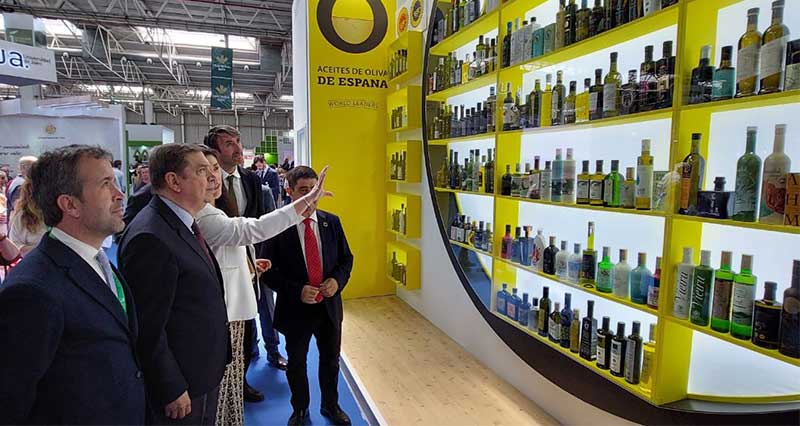
ExpolivaTech and Andalusian Universities as Catalysts for Change
The University of Jaén leads initiatives like the Operational Group Predic 1, developing open-access platforms similar to SIGPAC. Additionally, collaborations between universities and businesses have enabled the creation of "digital twins"—virtual replicas that optimize water and nutrient management in crops. These technologies simulate plant behavior and environmental interactions before implementing changes in the field.
Grants and R&D Projects for the Olive Sector
The SmartCrops 5.1 project, led by Familia Torres, brings together 15 Spanish entities (8 companies and 7 research centers) with a €6 million budget co-funded by the European Union and CDTI. This four-year initiative combats desertification, which threatens 50% of Spain’s territory, through smart technologies.
The program addresses challenges like:
- Resource efficiency
- Reducing water footprint
- Minimizing pesticide use
It promotes regenerative practices that enhance water retention and prevent erosion.
SÍAOVE and Oleotourism Strengthen EVOO Culture
The cultural and sensory component is a fundamental pillar of Expoliva 2026, perfectly complementing its commercial and scientific dimensions. The International Extra Virgin Olive Oil Showroom (SÍAOVE) has become an essential space where olive oil culture takes center stage through immersive experiences.
Sensory Activities, Showcookings, and Technical Tastings
SÍAOVE is conceptually designed as "a comfortable and tranquil space dedicated to sensory exploration", where the organoleptic qualities of olive oils are revealed to visitors. Highlights include:
- Open tasting sessions led by professional tasters and Expoliva Awards jury members
- Uninterrupted tastings of PDO (Sierra de Segura, Sierra Mágina, Sierra de Cazorla) and PGI (Jaén) oils
- Specialized workshops, such as the "Introductory Workshop to EVOO Sensory Analysis"
- Culinary activities, including showcookings where EVOO is the star
An innovative initiative is the SOST-BISCUITS project, which develops healthier cookies using olive oil as the main ingredient.
Expoliva Awards and EVOOLEUM as Quality Drivers
The Expoliva Awards have become a benchmark for quality, with Andalusia representing 77% of awarded oils. Meanwhile, the EVOOLEUM Awards stand out as "a unique and most rigorous competition in terms of olive juice quality and promotion", featuring in the prestigious "World’s Best Olive Oils" ranking alongside the Mario Solinas Award by the International Olive Council (IOC).
OleotourJaén and Olive Grove Tourism Experiences
Oleotourism is emerging as a high-potential resource to diversify the economy of olive-growing regions. OleotourJaén currently brings together around 130 attractions, including:
- Restaurants and visitable olive mills
- Unique accommodations, tasting rooms, and spas
- Museums, interpretation centers, and artisan workshops
This tourism model offers "a journey to the essence of olive culture", with experiences like visits to estates where "all five senses are engaged." Undoubtedly, combining gastronomy and tourism creates "promising new business opportunities for olive groves", strengthening cultural identity and local economic development.

We have prepared a practical guide for you in which clicking on this link, we will show you from how to define clear objectives to the selection of the target market, through all the institutional resources available to support you in the process. In addition, this guide also shares the most common mistakes you should avoid and metrics to evaluate the success of your trade mission.
Conclusion
After analyzing Expoliva’s evolution over the years, we can confidently say that the 2026 edition will mark a before and after for the global olive oil sector. Spain, as the undisputed leader with 40% of global production, will leverage this platform to strengthen its strategic position against emerging competitors. Additionally, projected attendance figures—exceeding 52,000 visitors and 1,600 international professionals from the last edition—will solidify this event as the absolute industry benchmark.
The internationalization of Spanish olive oil is, therefore, a key pillar of our economic future. Trade missions to Latin American and Mediterranean countries open new commercialization channels, while networking between Andalusian companies and global buyers generates unprecedented business opportunities. Indeed, the presence of 14 countries and 52 international delegations demonstrates the global reach of our olive oil industry.
Technological innovation is also a decisive factor for the sector’s competitiveness. AI, digitalization, and water sustainability are transforming traditional methods into more efficient and eco-friendly models. ExpolivaTech and Andalusian universities lead this paradigm shift through pioneering projects like "digital twins" and predictive platforms that optimize resources.
Finally, the cultural and sensory dimension of olive oil shines through SÍAOVE and oleotourism. Sensory activities, showcookings, and technical tastings bring EVOO culture closer to professionals and consumers, while OleotourJaén—with its 130 attractions—diversifies the local economy.
Looking ahead to Expoliva 2026, we envision not just a trade fair but a complete ecosystem where tradition and innovation intertwine to project our "liquid gold" into the future. Jaén reaffirms itself, therefore, as the global epicenter of olive oil—a place where history, culture, science, and business converge around a product that transcends gastronomy to become a symbol of territorial identity and a source of global inspiration.


